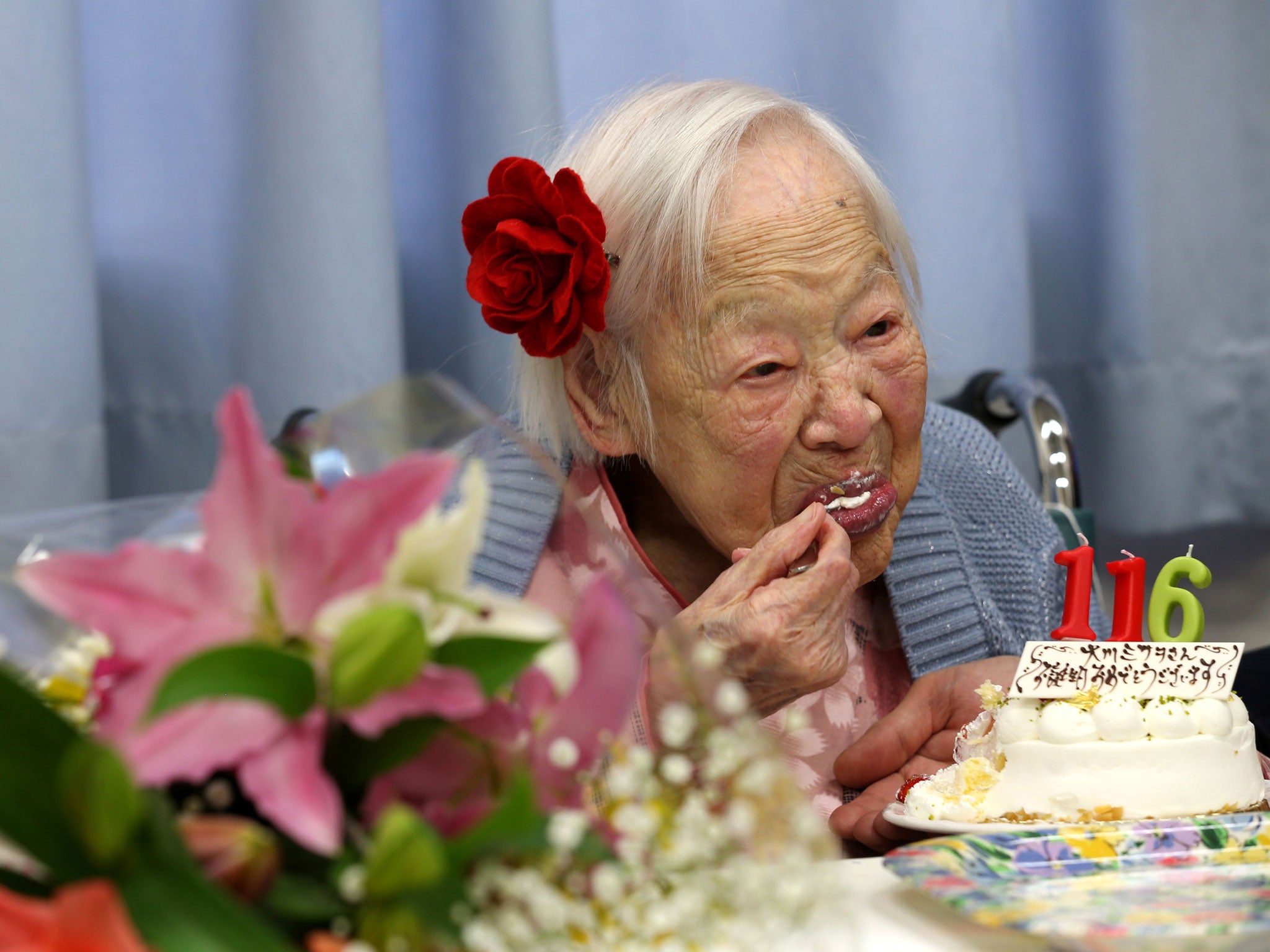Japanese people are living so long that the country's definition of 'elderly' could change

Japan is redefining ageing — literally.
Members of the Japanese Gerontological Society, a group of medical doctors and university professors, have proposed changing the threshold for "elderly" status from 65 years old to 75 given the country's widespread longevity, NHK World reports.
Census figures from 2015 show 26.7% of Japan's population is 65 years or older. At the current pace, estimates suggest the proportion will rise to 33% by 2035 and 40% by 2060.
Economists have expressed concern over the widespread aging because younger generations aren't having children like they used to. With fewer young people to cover greater social-security costs, people are taking on larger individual shares, limiting their personal spending.
Redefining "elders" as those over 75 instead of 65 would keep more older Japanese people in the workforce. Employees who normally would have retired in great physical shape would remain to contribute to the labor force, and hopefully boost the economy.
The Japanese seem to agree with the proposal.
According to the Japan Times, a recent survey conducted by the Health, Labor and Welfare Ministry found 20% of people thought old age began at 65, while 41.1% — the largest chunk — said it began at 70. Just 16% said it starts at 75, however.
A separate survey of people 60 or older found 70% of respondents said they'd be willing to work past 65. Japan Times even reports that 2015 marked the 12th straight year in which the portion of senior citizens in the workforce had risen. There are now an estimated 7.3 million work seniors, who make up 11% of all employees.
Given the widespread understanding that Japanese folks live a long time, plus the ingrained culture of work, the proposal seems like a natural shift in how ageing is characterized.
"The question is whether the changes will be matched by systematic reforms to enable those elderly people who are willing to continue working to do so," Japan Times states in a recent editorial, adding that those reforms include mandatory retirement ages and understanding that not every senior citizen can necessarily keep working.
In those cases, Japan may fill gaps in labor with ageless employees — or, as they're more commonly known, robots.
Read more:
• 9 of history's greatest philosophers reveal the secret to happiness
• 98% of all Japanese adoptions are employers adopting the adult men on their staff, not children
• 13 things you're doing wrong from the moment you wake up
Read the original article on Business Insider UK. © 2016. Follow Business Insider UK on Twitter.
Join our commenting forum
Join thought-provoking conversations, follow other Independent readers and see their replies
Comments